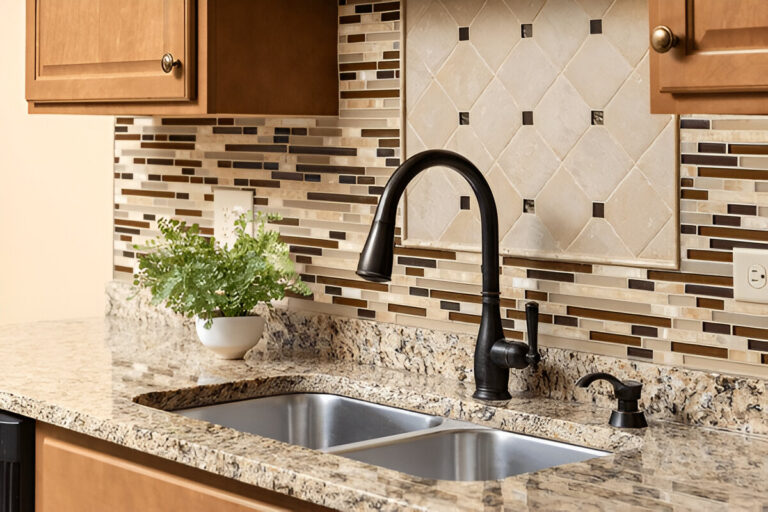When installing wholesale stone countertops in a residential home or commercial space, there are several options to evaluate, including natural stone and engineered quartz. Both materials are visually appealing, but each has distinct characteristics that can make it better suited for different practical needs and home styles. Here are some of the differences between natural stone and engineered quartz countertops:
Appearance
Natural stone countertops, such as granite, marble, and soapstone, are cut from slabs of quarried stone. Each slab features unique patterns that were formed over time through ancient geological processes. The mineral inclusions of feldspar, mica, and quartz create speckled patterns in granite. Marble showcases unique veining, ranging from subtle to highly contrasting streaks. Softer stones like soapstone have a more uniform coloration throughout the material.
Quartz countertops are engineered surfaces made from crushed natural quartz combined with resins and pigments. Manufacturers can produce consistent patterns from slab to slab. The countertops may mimic the look of marble, offer solid colors, or feature terrazzo-inspired designs. Quartz also offers colors not found in natural stone due to its engineered nature.
Porosity and Maintenance
Some natural stones have microscopic pores that can absorb liquids if not properly sealed. Regular sealing of wholesale stone countertops creates an invisible barrier against possible staining agents like wine or oil. The level of maintenance required varies depending on the stone’s mineral composition. Granite is relatively low-maintenance, while marble and limestone may require more frequent sealant applications. This is because they are more prone to scratches and etching from acidic substances.
Quartz has a non-porous surface that prevents liquids such as coffee, wine, and cooking oil from seeping in. Daily maintenance involves wiping the countertop with mild soap and water or using a non-abrasive cleaner. Because quartz is engineered with resin that fills any gaps between crushed mineral particles, it resists common kitchen stains without the need for additional sealing. The non-porous nature also prevents bacterial buildup, making these countertops a hygienic choice for kitchens and bathrooms.
Durability
With proper care, stone countertops can last many years in a residential setting. Granite is one of the hardest natural stones and has scratch-resistant properties. This helps it withstand daily wear and tear in high-traffic areas like kitchens and bathrooms. Natural stone is also heat-resistant, but excessive heat can sometimes cause cracks.
Quartz is rated as a seven on the Mohs hardness scale, making it another durable option for countertops. It is resistant to scratches and daily wear, but extreme heat can damage the surface. Using trivets or heat pads is recommended when cooking.
Find Wholesale Stone Countertops
The intended resident’s lifestyle can help determine whether the natural variation of stone or the engineered consistency of quartz is the right choice for a home. Assess the individual’s cooking habits, maintenance preferences, and overall design goals. Builders can also request samples of wholesale stone countertops and quartz to see what each material looks like under specific lighting conditions. Schedule a countertop consultation today to discover the ideal material for your residential or commercial space.


